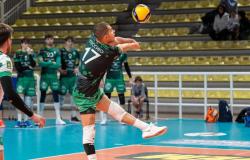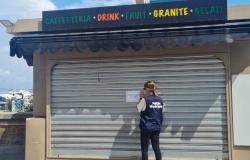Paolo Emilio Signorini could be released from prison, but the housing solutions proposed for house arrest are not suitable. Here is the provision of the Review Court which, as anticipated this morning, rejects the appeal presented by the former president of the Port Authority, in prison since last May 7 on charges of corruption, but at the same time opens a glimmer of hope for the measure of house arrest, also by virtue of Iren’s recent dismissal of Signorini, defended by lawyers Enrico and Mario Scopesi.
In their reasons, the judges of the Review Court underline, as the defense had already done, that the object of the appeal was not Signorini’s conduct, but the precautionary needs, which today would be satisfied by house arrest. “This Court – it is stated – believes that, in light of the period in which the appellant was subjected to the maximum measure, which constitutes a warning to respect the provisions of the house arrest measure, and the subsequent dismissal of Signorini for just cause by Iren, it can today be considered that, despite the conduct widely described in the documents – through which the defendant today tried to conceal the receipt of the benefits received (a circumstance, this, valorized to consider persistent and concrete the precautionary need referred to in art. 274, letter a), cpp) and indicative of a certain obstinacy in the criminal conduct, committed presumably also using his new and different position within Iren, the precautionary situation of reference has attenuated and can be abstractly satisfied by the measure of house arrest, if such measure can be structured with ‘armoured’ methods, that is, which prescribe the absence of contact with persons other than cohabitants”.
Obstinacy in criminal conduct
As emerged during the investigations and underlined by the judges of the Review, it appears that Signorini after having received “significant donations” would have advanced “further requests to entrepreneurs who claimed private interests that the Port Authority could satisfy”. The reference is to the practices of interest of Aldo Spinelli, under house arrest, such as the thirty-year concession of the Rinfuse terminal or the burying of calata Concenter.
The 200 thousand euro consultancy to Mauro Vianello
The Review Court, in order to provide an overview of Signorini’s conduct, recalls the 200 thousand euro consultancy in favour of Mauro Vianello, also under investigation and subjected to a prohibitive measure, “carried out without the knowledge of the Iren board of directors, certainly appears to be non-neutral conduct for the purposes of assessing the risk of repetition of specific conduct by today’s appellant”.
As stated, however, it is not Signorini’s conduct that has been judged by the Review Court which rejected Signorini’s appeal because, “the precautionary solution proposed by the defence, despite the reservation formulated at the chamber hearing to integrate the documentation relating to the existence of a custodial situation alternative to the massimos one, does not appear to be equipped with the
necessary attribute of stability”.
The proposed housing solutions were an apartment provided on free loan in Genoa or an apartment in Aosta owned by Signorini’s brother. For the Review Court, however, there are two flaws in Signorini’s request to leave prison.
First of all, the availability of the properties arrived via an email “not even provided with a digital signature” from the owners of the apartments to the law firm of Signorini’s lawyer. “It is evident that such communications, carried out by sending emails – not even provided with a digital signature – to the lawyer’s office and not to the registry of this
Court, cannot have the value of a precise declaration of will to assume, before the judicial authority, an effective and constant commitment”.
“Moreover, – the judges continue – from reading these communications it does not even emerge clearly whether the declaring subjects intend to take on both the commitment to satisfy the daily needs of the person under investigation, providing for all his material needs, and the commitment to provide financially for his maintenance. Nor is the economic and income condition of these relatives of the person under investigation demonstrated in any way, and therefore their actual capacity to take on such a commitment. Furthermore, according to both solutions proposed in the defense, the appellant – described as a person without means of subsistence – would find himself living alone since none of the relatives indicated by the defense offered to welcome him into their home”.






